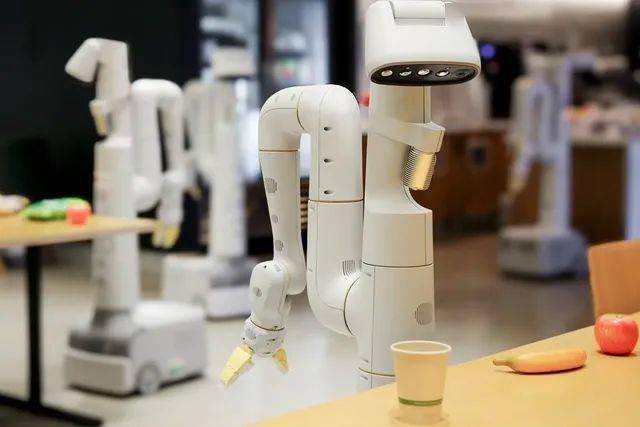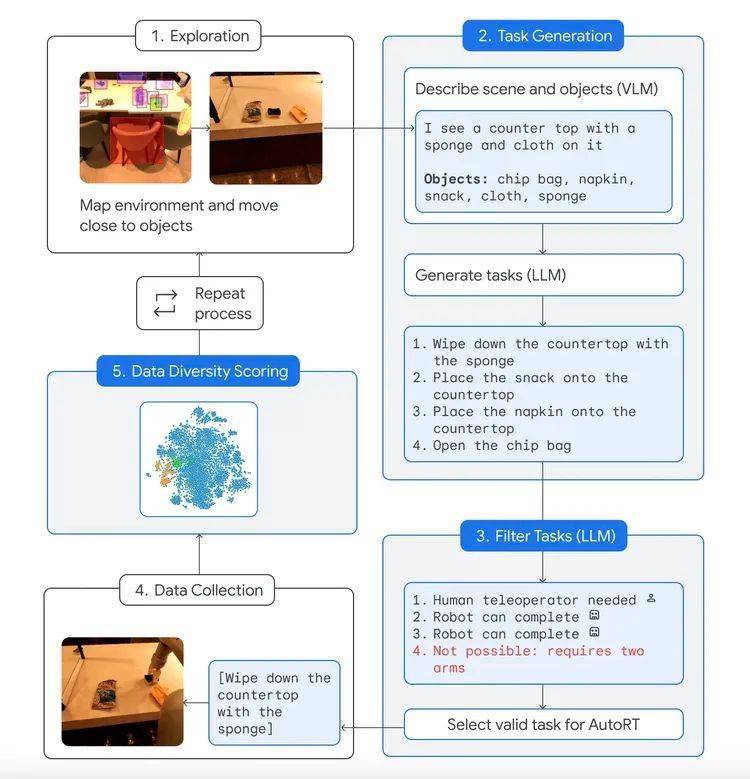
IT House reported on January 5 that DeepMind, a subsidiary of Google, recently announced three new developments. One of them drafted a "Robot Constitution" for the system that collects training data to ensure that AI robots will not harm Humanity.

AutoRT, Google’s data collection system, leverages visual language models (VLM) and large language models (LLM) to adapt to the environment, understand the environment, and determine tasks.
The "Robot Constitution" drafted this time is inspired by Isaac Asimov's "Three Laws of Robotics" and focuses on safety. The constitution instructs LLMs to avoid tasks involving humans, animals, sharp objects and even electrical appliances.
DeepMind stated that in order to improve safety, the robot's joints are limited, it will automatically stop when the force exceeds the threshold, and it is equipped with a physical emergency stop switch.
Google said that in the past seven months, they deployed a fleet of 53 AutoRT robots. The robots were deployed in four different office buildings and conducted more than 77,000 trials.

Some robots are controlled remotely by human operators, while others operate according to scripts or completely autonomously using Google's RT-2 artificial intelligence learning model.
The robot used in the trial looked more utilitarian than gimmicky — equipped only with a camera, a robotic arm and a mobile base. For each robot, the system uses VLM to understand its environment and objects within its field of view. Next, LLM came up with a list of creative tasks that the robot could perform, such as placing snacks on the countertop, and acted as a decision-maker, choosing the appropriate tasks for the robot to perform.
According to IT House, another new technology from DeepMind, SARA-RT, was found to have a more accurate and faster neural network architecture than the existing Robotic Transformer RT-2.
Google also announced RT-Trajectory, which adds 2D contours to help robots better perform specific physical tasks such as wiping tables.
The above is the detailed content of Google develops 'code of conduct for artificial intelligence machines' to protect humans from harm. For more information, please follow other related articles on the PHP Chinese website!
 What does independent direct connection mean?
What does independent direct connection mean?
 HTML space setting method
HTML space setting method
 location.assign
location.assign
 What are the uses of mysql
What are the uses of mysql
 What are the mysql update statements?
What are the mysql update statements?
 How to solve the problem that Ethernet cannot connect to the internet
How to solve the problem that Ethernet cannot connect to the internet
 What are the big data storage solutions?
What are the big data storage solutions?
 Three triggering methods of sql trigger
Three triggering methods of sql trigger
 How to implement instant messaging on the front end
How to implement instant messaging on the front end




